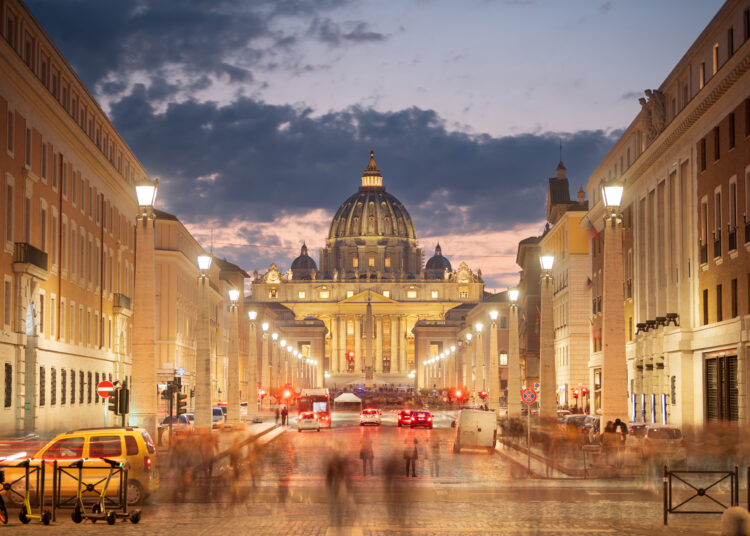Why Some Countries Make Citizenship Nearly Impossible
In an age of global migration, dual passports, and digital nomads, many countries have made it easier to gain permanent residency or even full citizenship. However, there are still several nations that make the process intentionally difficult—or outright inaccessible. The hardest countries to get citizenship in 2025 enforce harsh timelines, demand deep cultural integration, or limit access to citizenship based on religion, ethnicity, or political ideology.
From closed kingdoms to microstates and global powerhouses, here are the countries that stand out in 2025 for their uncompromising approach to citizenship.
1. Qatar: Where Heritage Trumps Residency
Despite being home to millions of long-term expatriates, Qatar’s path to citizenship is practically nonexistent for foreigners. The rules are intentionally restrictive.
-
Citizenship is typically reserved for those born to Qatari fathers.
-
Residency—even for decades—does not lead to eligibility.
-
There is no route via investment, marriage, or contribution.
In 2025, Qatar remains one of the hardest countries to get citizenship, with policies rooted in protecting national demographics and identity.
2. Vatican City: Reserved for the Clergy
Vatican City isn’t just a religious center—it’s a microstate with an incredibly exclusive citizenship policy.
-
Citizenship is granted only to those serving in specific roles such as clergy, the Pope’s staff, or the Swiss Guard.
-
It is entirely functional and temporary.
-
There is no pathway for laypeople to ever naturalize.
With such stringent criteria, Vatican City is perhaps the hardest country to get citizenship in 2025, especially for civilians.
3. Liechtenstein: A Local Referendum Just to Apply
In Liechtenstein, citizenship is not only a legal process—it’s a social one.
-
Applicants must reside for at least 30 years.
-
They must integrate linguistically and culturally.
-
Local communities can vote against granting someone citizenship.
This public approval model makes Liechtenstein one of the hardest countries to get citizenship, especially for non-Europeans.
4. Bhutan: The Kingdom of Exclusivity
Bhutan’s strong desire to preserve its traditions means it maintains one of the tightest naturalization systems in Asia.
-
Citizenship by birth requires both parents to be Bhutanese.
-
Foreign spouses rarely gain citizenship.
-
Even after 15+ years of residency, approval is discretionary.
Bhutan’s dedication to cultural conservation ensures it stays on the list of hardest countries to get citizenship in 2025.
5. Saudi Arabia: Reforms Without Full Access
Despite recent reforms to attract talent, Saudi Arabia’s path to citizenship is limited and selective.
-
Naturalization is only available for highly skilled individuals or cultural contributors.
-
Dual citizenship is not allowed.
-
The process is not transparent or open to public application.
Saudi Arabia remains among the hardest countries to get citizenship, particularly for average residents or expats.
6. Kuwait: Decades in Limbo
Kuwait is home to a large expatriate workforce, many of whom live in the country their entire lives without gaining rights or access to citizenship.
-
Only Arab Muslims may be eligible under strict conditions.
-
Long-term residents and foreign-born individuals have no clear path.
-
The country aims to tightly preserve its national identity.
Kuwait continues to be one of the hardest countries to get citizenship in 2025, despite its reliance on foreign labor.
7. Switzerland: Rich, Safe—and Complicated
Switzerland may be attractive for its stability and lifestyle, but gaining citizenship is no easy task.
-
Applicants must live in the country for at least 10 years.
-
Local integration and language skills are mandatory.
-
Approval can depend on public input at the cantonal level.
Switzerland earns its place among the hardest countries to get citizenship, even for long-term, fully assimilated residents.
8. China: Closed Borders, Closed Passports
China operates with one of the world’s most restrictive immigration and citizenship policies.
-
No dual citizenship is allowed.
-
Citizenship applications are only approved for elite individuals—such as athletes, scientists, or political allies.
-
No pathway exists for long-term foreign residents.
China’s closed-off approach makes it one of the hardest countries to get citizenship in 2025, with very few exceptions.
9. North Korea: A Citizenship Black Hole
North Korea has no public or legal process for naturalizing foreigners.
-
Citizenship is effectively hereditary or assigned by the regime.
-
There are no known legal pathways for outsiders.
-
Immigration is virtually non-existent.
North Korea is likely the hardest country to get citizenship, because the concept of voluntary naturalization doesn’t exist there.
10. Japan: Culture Before Convenience
Japan has strict social and legal expectations for those seeking citizenship.
-
Five years of uninterrupted residence is required.
-
Applicants must renounce any previous citizenship.
-
Language proficiency and cultural adaptation are critical.
Japan’s emphasis on social conformity keeps it among the hardest countries to get citizenship, even for well-integrated applicants.
11. United Arab Emirates: Welcome to Stay, Not to Belong
The UAE offers long-term residency and Golden Visas—but not real citizenship access.
-
Naturalization is invitation-only and extremely rare.
-
Only a handful of people have received UAE passports in the past few years.
-
No legal application process exists for most foreigners.
The UAE is one of the hardest countries to get citizenship, despite offering incentives to wealthy investors and skilled professionals.
12. San Marino: A Tight-Knit Microstate
San Marino, like Liechtenstein, restricts citizenship as a matter of population control.
-
30 years of residency is required before even applying.
-
The small population means the government strictly regulates admissions.
-
Every applicant is vetted through intense bureaucracy.
San Marino remains on the list of the hardest countries to get citizenship in 2025, especially for those without family ties.
13. Sovereign Order of Malta: A Diplomatic Anomaly
The Sovereign Military Order of Malta is a religious and diplomatic entity with limited global recognition.
-
Citizenship is honorary and restricted to internal ranks.
-
No one can apply as a private individual.
-
The order issues very few passports, mainly for diplomatic use.
As a unique institution, the Sovereign Order of Malta is symbolically among the hardest places to gain citizenship.
Why Access Remains Restricted
As global mobility increases and more individuals seek second passports for freedom, tax, or security reasons, some nations are tightening access rather than opening it. Whether it’s due to cultural preservation, religious frameworks, national security, or demographic management, the hardest countries to get citizenship in 2025 reflect an important geopolitical reality: not everyone is welcome.
If you’re considering a second citizenship or a long-term immigration strategy, understanding these roadblocks is crucial before investing your time, money, or future. There are still dozens of countries offering accessible citizenship—just not the ones on this list.














